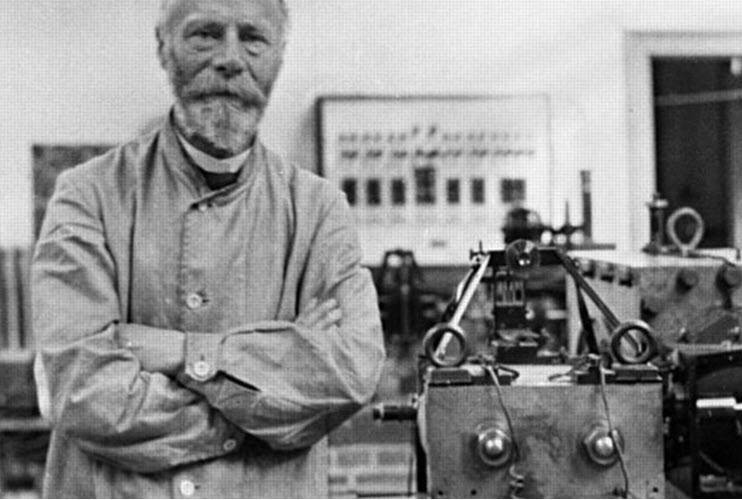Willem Einthoven: Revolutionizing Cardiology with the Electrocardiogram

Willem Einthoven (21 May 1860 – 29 September 1927) was a Dutch doctor and physiologist. He was awarded the Nobel Prize in Physiology or Medicine in 1924.
Life and Career
He was born on 21 May 1860, in Semarang, Indonesia. He pursued his education in Leiden, Netherlands, where he enrolled at the Leiden University Medical School in 1878. During his time at Leiden University, Einthoven’s brilliance shone through as he excelled in various disciplines. He developed a particular interest in physiology, focusing on the cardiovascular system. Einthoven’s insatiable thirst for knowledge and dedication to his studies propelled him to the forefront of scientific inquiry.
His groundbreaking work began in the late 19th century when he invented the first practical string galvanometer. This invention allowed for the accurate measurement and recording of electric currents produced by the heart. With his newly developed apparatus, Einthoven set out to explore the electrical activities of the heart, laying the foundation for modern electrocardiography. Through meticulous experimentation and analysis, he discovered the significance of electrical signals in diagnosing various heart conditions. He formulated a system of lead placement on the body, known as Einthoven’s triangle, which provided a three-dimensional representation of the heart’s electrical activity. This innovation revolutionized the field of cardiology, enabling physicians to detect abnormalities in the heart’s rhythm and diagnose cardiac disorders with unprecedented precision.
Throughout his illustrious career, Willem Einthoven made significant contributions to the field of medicine. He dedicated his life to research and teaching, holding various academic positions at Leiden University. Einthoven’s innovative spirit and commitment to advancing medical knowledge earned him numerous accolades and recognition. He died on 29 September 1927, in Leiden, Netherlands.
Award and Legacy
He was awarded the Nobel Prize in Physiology or Medicine in 1924, for his groundbreaking work in electrocardiography. Willem Einthoven’s contributions to the field of electrocardiography continue to resonate in the medical community to this day. His innovative methods and meticulous research laid the groundwork for modern diagnostic techniques, forming the basis for cardiovascular medicine. The electrocardiogram (ECG) remains an indispensable tool in diagnosing heart conditions, thanks to Einthoven’s pioneering efforts.
His legacy extends beyond his scientific achievements. His dedication to education and the pursuit of knowledge inspired generations of physicians and researchers. The principles he established and the techniques he developed continue to shape medical education and research methodologies, ensuring that his influence endures.
Observer Voice is the one stop site for National, International news, Sports, Editor’s Choice, Art/culture contents, Quotes and much more. We also cover historical contents. Historical contents includes World History, Indian History, and what happened today. The website also covers Entertainment across the India and World.

